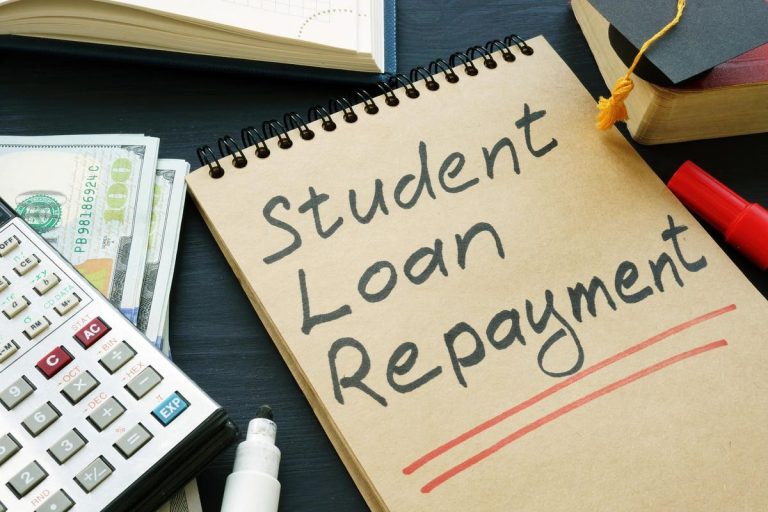If you have federal student loans, you’ve likely noticed interest has started accruing and your first payment is looming.
If you haven’t thought much about having to make these payments again or whether you can afford to, you are probably in for an unwelcome and jarring surprise.
So, what do you do if you have federal student loans right now and you’re gearing up to dive back into making monthly payments for another few years, a decade or significantly longer? Here are five steps to consider taking before another month passes you by.
Confirm And Update Your Contact Information
In order to start making payments on federal student loans next month, you need to make sure you receive any correspondence from your loan servicer. This means making sure your address is updated from whatever it was three years ago when the Covid-19 payment pause began, as well as your phone number and email address.
In this realm, you’ll want to confirm and update the contact information that’s found on your loan servicer’s website and on your StudentAid.gov profile.
Know When Your First Payment Is Due
When you log into your student loan account to update your contact information, you should also be able to find details on your loans like how much you owe, their interest rates, and the payment you’ll owe starting next month. Your new student loan payment due date may also be listed in your account, although you still have time to contact your loan servicer to find out for sure if it’s not.
If you don’t have your first bill yet, no need to panic yet. The U.S. Department of Education says your loan servicer is required to send your bill at least 21 days before your payment due date.
Update Auto-Debit Options
Next up, consider whether you want to pay your student loans with auto-debit from a connected bank account or if you prefer to pay them manually. Note that, if you were using auto-debit for federal student loans before March of 2020, you’ll have to re-enroll to become eligible again.
Also be aware that using auto-pay for your federal student loans can help you score a 0.25% discount on your loans’ interest rates.
Consider Changing Your Repayment Plan
Believe it or not, but you still have time to switch repayment plans or apply for an income-driven repayment plan before monthly payments resume on federal student loans next month. In fact, you can opt for an income-driven repayment plan or a fixed repayment plan that lasts for a set number of years.
The new SAVE income driven repayment plan is definitely worth checking out since it lets you pay just 5% of your discretionary income toward undergraduate federal loans instead of 10%. This plan also increases the income exemption from 150% to 225% of the poverty line so more people have $0 monthly payments, and it prevents interest from accumulating if the monthly payment winds up being less than the interest that accrues. The White House fact sheet on the plan also says that most borrowers who do make a monthly payment will save at least $1,000 per year compared to other income-driven repayment plans.
Also be aware that, if you don’t pick a repayment plan and you weren’t on one before the Covid-19 payment pause began, your loan servicer will place you on the standard, 10-year repayment plan for student loans and not an income-driven plan.
Studentaid.gov says comparing repayment plans with its Loan Simulator can help you see which plan would fit best with your needs and your budget. If you want to sign up for an income-driven repayment plan that bases what you owe on your income and family size instead of your loan balance, you can do so using the online IDR application.
Create A Written Monthly Budget
If you are someone who is heading into this new repayment term with a significant monthly payment across all student loans, you may need to do some reworking of your monthly budget to make room for this new bill. This can mean looking for ways to save money, finding ways to earn more money, and potentially even both. Your strategy will depend on how much you can afford to pay toward student loans each month after covering bills and other expenses, how much income you actually bring in, and the shortfall between those two figures (if any).
Your best bet in this situation is not playing things by ear and just hoping you have enough cash to pay your student loan bill come October. Instead, you should write out a written monthly budget with two columns — one column of your estimated income for the month and another that lists all your fixed and fluctuating expenses for the same month.
You can also pore over your monthly credit card bills and bank statements to see where your discretionary spending or “extra cash” has been disappearing for the last few months. It could be a category like dining out or entertainment, which may be fairly easy to pull from if you need to free up cash to throw at your student loans.
The Bottom Line
Federal student loan payments are about to come due again after an unprecedented break of more than three years, which means many borrowers will be making student loan payments for 3+ years longer than they would have otherwise. That said, there’s still time to switch repayment plans to get a more affordable monthly payment, including taking advantage of the new SAVE income-driven plan.
Just know that you don’t have a lot more time to waste if you want to start repaying loans next month with the best possible terms. Don’t wait to figure out what you’re going to do and just hope it works out in some way. Spend some time exploring your options, and you may find that repaying your loans winds up being more affordable than you thought.
Read the full article here









